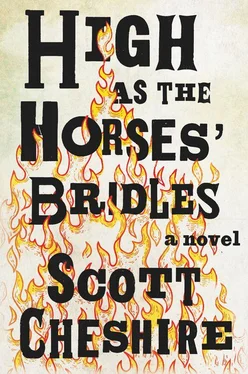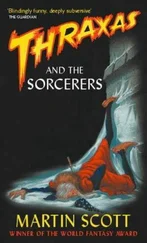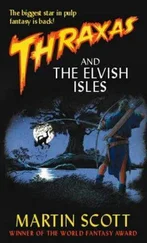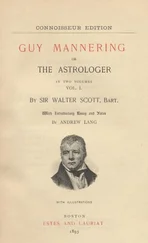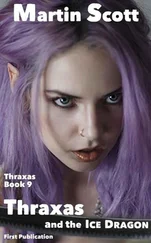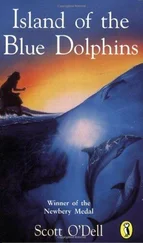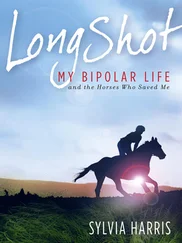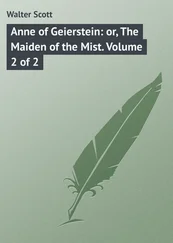That night, I watched the Cold Capers episode while Sarah was on the phone, on the porch. I decided I didn’t want her to see Issy after all. I didn’t need her to see his face to make it any more real than it was, and I wanted to be alone. The show was disappointing, anyway. They were trying to re-create and make visible his disappearance through interviews with the neighbors and his grade school teachers, and through a not very convincing portrayal of his mother. They tried to condense Issy’s most essential earthly moments into fifty-nine minutes, including commercials. The show was followed by some local news coverage. The reporter showed Issy’s block, interviewed the neighbors, even spoke with some childhood friends. No sign of Havi, though. Or me, come to think of it. The neighbors wanted details, to look at the ghost if they could, and to play a small part in the drama. Even I did, because the death you never see is your own, so we pay close attention to the others. Earlier that morning, I’d read a short piece on Issy’s mother online, about how she’d spent the subsequent decade devoted to finding her boy, every last dollar, and in doing so tried to assimilate every last moment in scrapbooks. The cuts on her face had settled into scars. She had that conquered look of a junkie who’d finally stopped because she had a sadness even drugs couldn’t fill. How was it I had no idea of her search? She had seventeen scrapbooks filled with photos, news articles, report cards, and the ripped pages of coloring books. I definitely understood the impulse and temptation to think every living moment deserves its own eschatology. But that’s just no way to live.
That next evening, after a long day of cleaning, Sarah and I sat on the porch where it was cool in the shade of the roof, our legs and feet brilliant in the sun going down. Boys were playing handball across the street. We ordered Chinese and drank wine and I told her about growing up in the neighborhood. She asked if I was still running and I said yes, and that I dreaded the idea of ever stepping on a treadmill again.
She laughed.
And for one brief flash we glimpsed the old love for each other, but then we also felt a longing to be somewhere else, with someone else. I thought I saw in her face the suggestion of a playful smirk, but I knew it wasn’t for me.
Half joking, I said, “We should go upstairs and see if we still got it.”
She laughed, slapped my back, and went inside, leaving me alone.
That next morning the bell rang, and we both jumped, excited to allow another force into our brief afterlife together. It was two Jehovah’s Witnesses, a man and a woman, and Sarah and I watched them through the curtains like we were hiding from a couple of trick-or-treaters. I thought vaguely of Bart and Gerard, and how it was not entirely impossible that I would see them again. Then the hospital called. Dad had finally opened his eyes. I asked Sarah to come with me. I insisted. Dad would love to see her.
She said no, better not. It felt like the right time to go, plus Nikos was waiting.
She got her bag together, gave me a long hug, and closed the front yard gate behind her. She waved goodbye. I watched her walk down the street, hoping she would turn back and wave.
* * *
A few days later, the doctors said Dad was as ready as he’d ever be. They’d forgo any psychological testing as long as he was released into my exclusive care and custody. The man still wasn’t speaking. So we made plans for his eventual discharge from the hospital. I asked the nurses for advice on what kinds of serious problems I might encounter taking him home with me out west. And without them, I never would have given thought to all that sand. He’d need his own wheelchair but forget about taking him to the beach. I said goodbye to the lovely Leeann.
The real estate lady promised it was a one-stop-shop thing with her. She knew plumbers, electricians, whatever. She said definitely keep making repairs but focus on the front yard and porch because this is what sells a house, a porch, and the market was looking pretty strong.
The doctors said Dad showed plenty of promise, even though he hadn’t said a word. The eyes were open, but he hardly moved, and they wanted to keep him just another day or so. So I should’ve been retouching the walls and scraping rust from the back porch railing, peeling paint flakes from the front porch columns. I should have been increasing our “curb appeal,” and getting ready for his return so we could finally leave. But I was spending time at my father’s computer. It radiated the same bluish glow that colored his face when he was rapt in his own daily online sessions, his hunt for I don’t what exactly except that, hospital incapacitation aside, it might have never ended. I let the computer light paint my face, too. I listened to the hum it made when the moving parts got warm and the fan clicked on. I couldn’t bring myself to wipe his fingerprints from the screen.
The search history was what you’d expect: Christian sites, online biblical resources, a community blog for dream journaling, some vaguely conspiratorial religious message boards, even a few genealogy searches. Nothing especially fruitful. But then I stumbled onto a site he’d apparently visited a few times. There was an article there about a place called Beth Sarim (!). It felt like a small mystery was unfolding. I went and got the photo from the coffee table where it lay with the others: “C. Russell and O. Laudermilk.” The article said “Beth Sarim,” Hebrew for House of Princes, was the official name given a mansion in San Diego, built in 1930 by the Watch Tower Society (two separate words, back then). Beth Sarim was to be a welcoming-home place for “the return of the resurrected prophets and patriarchs of biblical antiquity, like Abraham, and Moses, David, and Isaiah.” I was speechless. They’d built a house? An actual house? I sat back in my chair and thought about this. Architects were hired and blueprints were made. A hole was dug and the foundation poured because they were sure the End was just around the corner — and, lo, there would be a resurrection. So confident! Bold, really. I looked back at the screen, kept reading: “The End was to have come crashing by 1914, which would be followed by a resurrection of the faithful, and the Old Testament Princes would lead Mankind while God himself ruled over a new and Perfected Earth from His New Heavenly Kingdom and thus come the final disappearance of Death.”
1914. My dear God. And when the Great War hit, they must have salivated. What did they do come 1915? ’16? They built a house, for God’s sake.
I kept reading: “It was then re-predicted that 1925 would ring out the first mortal blow of Armageddon. Beth Sarim would be Headquarters for the Earthly Princes in the End Times and Forever After.”
1914. 1925. 1975. 2000.
What next? When next?
I looked at the Laudermilk in the photo, and it had to be my grandfather, young and handsome, with his whole life unexpectedly and aversely ahead of him. And yet nothing chilled me more than to read the final legacy of Beth Sarim. There on the screen, like an epitaph for that barren place as much as for my family: “Beth Sarim is privately owned now, adorned with tall palm trees, terra-cotta tile roofing, and a lush green lawn. It’s registered with the city of San Diego as official Historical Landmark number 474.”
* * *
The agent sold the house just two days after it was listed, to the Sikh temple right around the corner. They were expanding and would gladly pay the full price in cash if I would just please hurry up and leave, and to compensate for any emotional trauma I might experience after hearing their plans to immediately tear the old place down. They would do this as soon as I left the premises. I didn’t really know how to respond except by nodding, sipping my cup of coffee. I called a company about a custom wheelchair. A social worker helped me arrange for Dad’s release. I called Amad and told him I was coming home, that Dad was coming with me. I stood on that porch and watched the neighbors rake the red, orange, and yellowing leaves into small tidy piles.
Читать дальше
